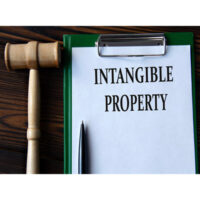The Significance Of Intangible Property

Every estate plan can contain the following: tangible property and intangible property. Tangible property is property that you can touch and hold. And, intangible property is a little different from tangible property, in several key ways.
Going over the significance of intangible property when it comes to your estate plan, and speaking with an estate planning lawyer at the Millhorn Elder Law Planning Group today will make it easier for you to develop an estate plan that achieves all of your goals.
What Is Intangible Property?
Right before we go over the definition of “intangible property,” we must define “tangible property.” And, with that in mind, “tangible property” is a term that refers to physical assets.
Just as an example, if you have a couch and a car that you want to give your beneficiaries, those two items would be considered “tangible property.”
Given the definition of “tangible property,” “intangible property” is property that has no physical form. But, despite not having any physical form, this property still holds value.
A good example of intangible property is as follows: stocks and bonds held in an account that, while they do not have any physical form, produce financial value of one sort or another.
How Can You Put Intangible Property Into Your Estate Plan?
Every piece of property that you happen to own – tangible or intangible – must be inventoried before it is placed into your estate plan.
To put intangible property into your estate plan, you must inventory this intangible property. And, then, you must assign value to all of the intangible property.
By assigning value to this intangible property, you will have an easier time integrating it into your estate plan. This is especially true if you plan on going through probate although, if possible, avoiding probate is always wise.
Right after you assign value to your intangible property, you must go over who you want to receive this intangible property. This could be a family member or friend, among many other possibilities.
All of this leads to the final point: you must place this intangible property into some kind of estate planning arrangement. And, this, in most cases, means a will or trust.
If you do not mind going through probate, you can place your intangible property in a will. Doing so will, in most cases, dilute the overall value of these assets before your beneficiaries get them, but the process works.
On the other hand, if you would like your intangible property to go directly to your beneficiaries, without any of its value being diluted, you can work with an attorney to set up an effective trust.
The right trust will bypass probate, ensuring that your assets retain their value. On top of that, a good trust will let your assets go directly to your beneficiaries, when you pass away. This saves time and money.
Speak With A Florida Estate Planning Lawyer Today
If you would like to develop an estate plan that includes your tangible and intangible property, working with a lawyer is one of the best decisions you can make.
Speak with a Florida estate planning lawyer today and we will help you develop an estate plan that satisfies your needs.
Sources:
law.cornell.edu/wex/tangible_personal_property
law.cornell.edu/wex/intangible_property


